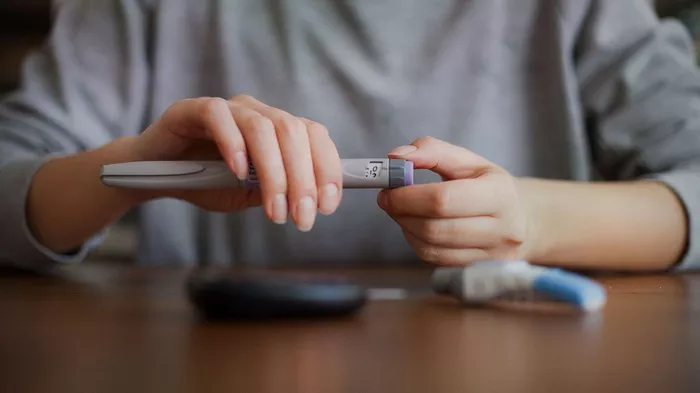Recent research from the Centenary Institute reveals that specific blood fat markers can forecast how well individuals with pre-diabetes will respond to dietary weight loss interventions. This advancement could lead to more tailored strategies for preventing and managing type 2 diabetes.
Pre-diabetes is characterized by elevated blood sugar levels that fall short of diabetes thresholds. Weight loss through dietary modifications is a standard recommendation to normalize blood sugar levels. Nevertheless, over half of pre-diabetic individuals do not achieve normal blood sugar levels despite weight loss.
The study, involving 104 participants with pre-diabetes who lost at least 8% of their body weight through a low-energy diet, sought to pinpoint blood biomarkers that could predict the effectiveness of dietary weight loss. Researchers employed advanced data analytics and machine learning to examine shifts in numerous blood lipids—fats and fatty acids—before and after the dietary intervention.
Published in The American Journal of Clinical Nutrition, the study identified substantial changes in various lipids following weight loss. Crucially, specific lipids measured prior to weight loss could forecast improvements in participants’ blood sugar levels. For instance, sphingolipids, a type of fat present in cell membranes, correlated with alterations in fasting blood sugar levels. Additionally, other lipids were associated with improvements in hemoglobin A1c, insulin levels, and insulin resistance.
Dr. Yanfei (Jacob) Qi, the lead author from the Centenary Institute’s Centre for Cardiovascular Research, highlighted the significance of these findings. “Our research indicates that particular blood fats can significantly predict an individual’s likelihood of improving blood sugar levels through weight loss,” Dr. Qi stated.
“This insight could revolutionize diabetes prevention by enabling more personalized treatment plans for those less responsive to generic dietary recommendations,” he added.
The researchers are optimistic that identifying these lipid biomarkers will enhance diabetes prevention efforts and improve outcomes for at-risk individuals. They are planning to further validate these predictors through a three-year lifestyle intervention study, which will combine diet and physical activity to assess weight control in pre-diabetic individuals.
Related topics:
Glytec Strengthens Global Hospital Diabetes Management with Expanded Roche Partnership
Pharmac’s New Funding for Type 1 Diabetes Technology: A Lifesaving Milestone
FDA Approves First Automated Insulin Pump for Type 2 Diabetes


























